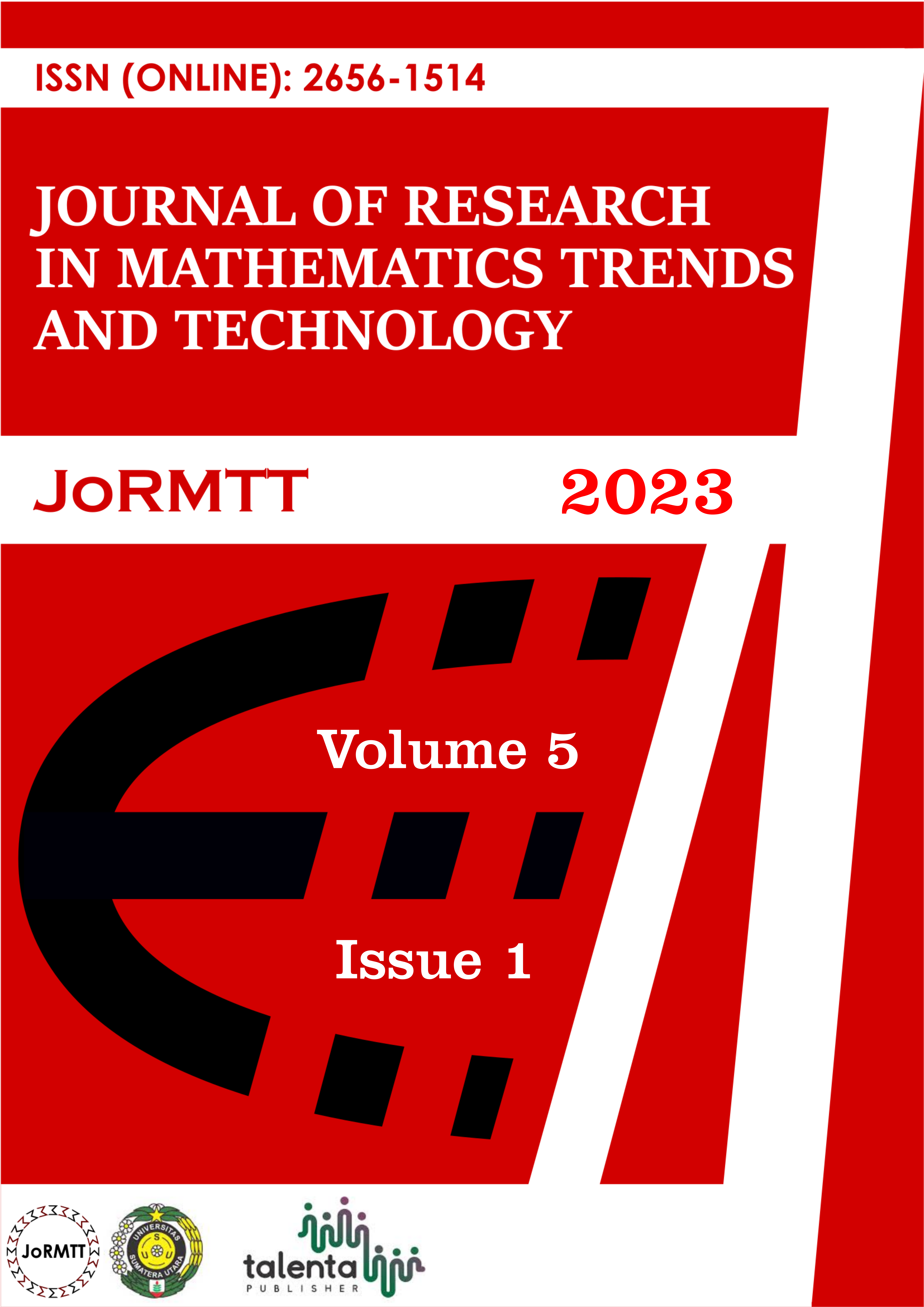Analysis of Internal Community Factors in Participating in the Family Planning Program in Medan Johor District Using the Logistic Regression Method
DOI:
https://doi.org/10.32734/jormtt.v5i1.16026Keywords:
Logistic Regression, Family Planning Program, Medan JohorAbstract
Regression is a statistical analysis method to describe the relationship between the dependent variable which has two or more categories with one or more independent variables on a categorical or continuous scale. The purpose of this study is to apply the logistic regression method to see how much influence the Internal Factor Analysis of the Community has in participating in the Family Planning Program in Medan Johor District. As is known, according to data from the BPS for North Sumatra Province, Medan Johor is included in a slum sub-district because it is caused by the dense population in this sub-district which is not in accordance with its area. The total population in Medan Johor District currently reaches 137,367 people, with an area of 16.96 km2and a population density of 8,099 people/km2. So that in this study, it was found that the level of education, age and occupation did not have a significant effect on opinion, which had a significant effect on opinion with a Sig value of 0.020 <0.05, namely the community's knowledge of the family planning program
Downloads
Downloads
Published
How to Cite
Issue
Section
License
Copyright (c) 2023 Journal of Research in Mathematics Trends and Technology

This work is licensed under a Creative Commons Attribution-ShareAlike 4.0 International License.
Authors submitting a manuscript do so on the understanding that if accepted for publication, copyright of the article shall be assigned to Journal of Research in Mathematics Trends and Technology (JoRMTT) and Faculty of Mathematics and Natural Sciences as well as TALENTA Publisher Universitas Sumatera Utara as publisher of the journal.
Authors still retain the rights to use and share the published articles without written permission from JoRMTT, as long as they follow the Creative Commons Licensing Terms as set forth by Creative Commons. Authors responsible to obtain the license or related copyright issues in their works. JoRMTT shall be released of any liabilities should any problems arise due to authors errors in this matter.
Authors permit JoRMTT to publish and provide the manuscripts in all forms and media for the purpose of publication and dissemination.
JoRMTT will follow COPE Code of Conduct and Best Practice Guidelines for Journal Editors to protect the research results and takes allegations of any infringements, plagiarisms, ethical issues, and frauds should those issues arise. The manuscript is attributed as authors' work, and are properly identified.
The Copyright Transfer Form can be downloaded here.
The copyright form should be signed originally and sent to the Editorial Office in the form of original mail or scanned document.
Users are free to:
- Share (copy and redistribute the material in any medium or format)
- Adapt (remix, transform, and build upon the material)
under the following terms:
- Attribution (must give appropriate credit, provide a link to the license, and indicate if changes were made. You may do so in any reasonable manner, but not in any way that suggests the licensor endorses you or your use)
- NonCommercial (may not use the material for commercial purposes)
- ShareAlike (If you remix, transform, or build upon the material, you must distribute your contributions under the same license as the original)
- No additional restrictions (You may not apply legal terms or technological measures that legally restrict others from doing anything the license permits)
Notices:
You do not have to comply with the license for elements of the material in the public domain or where your use is permitted by an applicable exception or limitation.
No warranties are given. The license may not give you all of the permissions necessary for your intended use. For example, other rights such as publicity, privacy, or moral rights may limit how you use the material.













